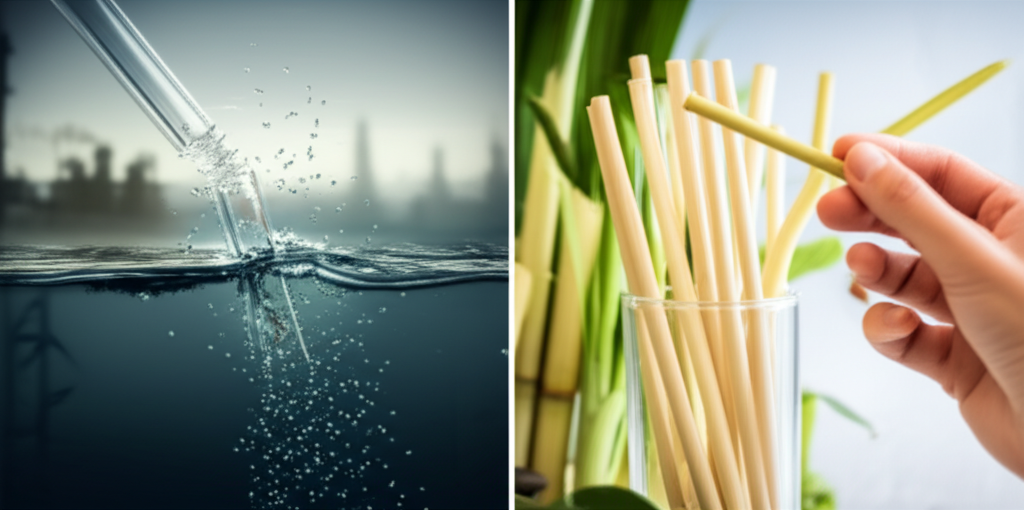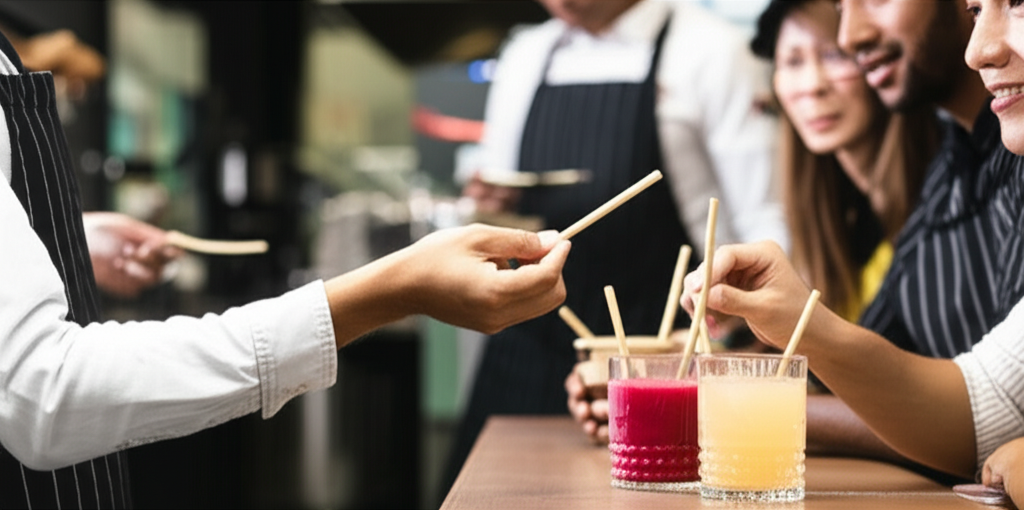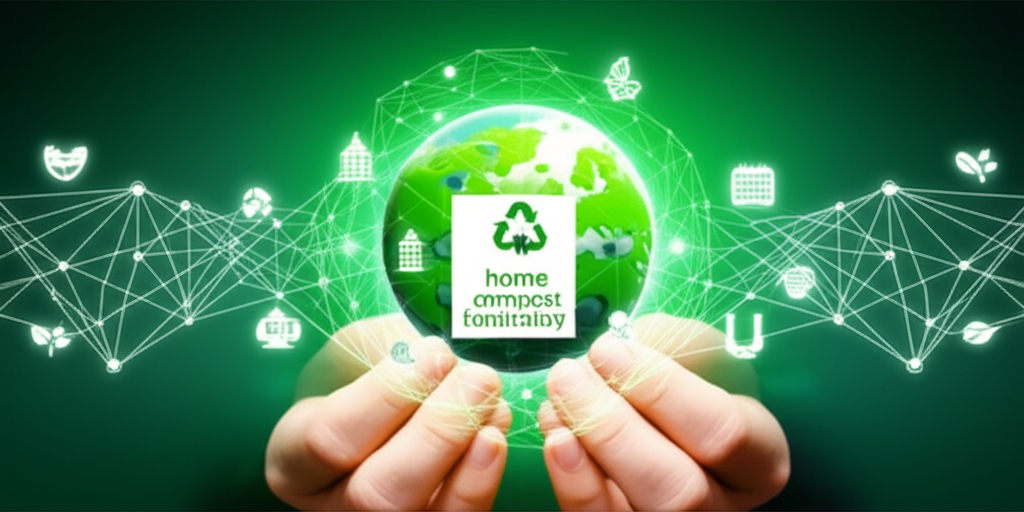The plastic straw dilemma: a highly visible symbol of environmental impact and a growing regulatory headache for restaurants. With consumer demand for eco-friendly options surging (80% prefer them, and many are willing to pay more) and legislative pressure mounting (US state/city bans, EU SUPD), the imperative for change is undeniable. Biodegradable straws offer a viable, high-performing solution for modern eateries. This guide will equip restaurant decision-makers with the knowledge to confidently choose the right biodegradable straws, ensuring compliance, enhancing brand image, and satisfying eco-conscious diners.
The Journey to Sustainable Sipping: A Brief History of Straws and the Green Revolution
Soti nan ansyen orijin rive nan konvenyans modèn: premye pay yo, tankou tib lò sumeryen ak pye ble natirèl, dat tounen nan anviwon 3000 anvan epòk nou an. Envansyon Marvin C. Stone nan pay papye a nan 1888 ak kreyasyon Joseph B. Friedman nan pay pliye an 1937 te make pwogrè enpòtan. Sepandan, ogmantasyon nan pay plastik bon mache, jetab nan ane 1950 yo ak ane 60 yo ranplase papye, mete etap la pou yon kriz anviwònman an.
The environmental awakening arrived with a growing awareness of plastic pollution—over 500 million straws are used daily in the US, contributing significantly to ocean debris. Escalating plastic bans globally (Seattle 2018, Taiwan 2020, EU 2021) further fueled the demand for alternatives. This need for eco-friendly options sparked new material science and innovation in biodegradable materials.

Understanding Your Options: A Deep Dive into PLA-Free Biodegradable Straws
Pwomès debaz PLA-Free se yon konpozisyon 100% plant ki baze sou, san asid polilaktik (PLA), ki souvan mande pou konpostaj endistriyèl. Avantaj kle yo pou restoran yo enkli yon anprint anviwònman an redwi, absans mikwoplastik danjere, ak yon garanti BPA/PFAS/chimik gratis pou sekirite konsomatè yo.
Paille kann: Chanpyon Agrikilti Upcycled la
Pwosesis fabrikasyon an pwofite bagas, rezidi fib kann lan, transfòme li an kaka, ki answit moule epi trete chalè nan yon pwosesis zewo fatra. Pwopriyete pèfòmans kle yo gen ladan rezistans enpresyonan, rezistans dlo ki dire 4-24 èdtan san yo pa tranpe, ak rezistans chalè jiska 90-100 ° C, ki fè yo apwopriye pou bwason cho. Paille kann ofri yon gou net, yon santiman lis, epi yo pa transfere okenn gou. Paille sa yo pa toksik, gluten-gratis, ak gratis nan pwodui chimik danjere.
Anviwònman, yo 100% biodégradables ak kay konpostab, dekonpoze nan semèn nan mwa nan konpòs lakay oswa 90-180 jou nan enstalasyon endistriyèl, retounen nan lanati kòm dlo, CO2, ak byomass. Adopsyon mache yo nan sèvis manje Ozetazini ap grandi nan boutik kafe, restoran, ba, ak otèl akòz pèfòmans ekselan yo ak kalifikasyon zanmitay ekolojik, ak disponiblite esansyèl ak pri ki konparab ak lòt altènativ prim.
PHA Straws: Pwochen-Jenerasyon Marvel Bioplastic la
Pwosesis fabrikasyon an enplike nan fèmantasyon mikwòb materyèl òganik tankou lwil kanola ak sik yo pwodwi yon biopolymer. PHA payi imite pay plastik tradisyonèl yo, ki ofri yon eksperyans itilizatè abitye. Paille sa yo solid, kenbe estrikti yo nan bwason cho ak frèt jiska 100 ° C, e kèk menm vini ak yon "Pa janm mouye pwomès." Yo versatile ak apwopriye pou divès kalite bwason, ki gen ladan cocktèl, fwete, ak bwason jumbo, yo apwouve FDA, ak BPA / PFAS-gratis.
Vrè biodégradabilite yo kouvri divès anviwonman, tankou konpòs endistriyèl, konpòs lakay, tè (12 mwa), ak anviwònman maren (4-8 mwa, 90% dezentegrasyon nan 6 mwa a 30°C), dekonpoze an CO2, dlo, ak byomass. Gwo chenn tankou Dunkin', Starbucks (pilòt), TOUS les JOURS, ak Sweetgreen ap adopte pay PHA, ak gwo kwasans mache prevwa (egzanp, 15-20% CAGR 2025-2033).Aprann plis sou angajman nou an pou materyèl dirab nan momoio.com.

Beyond Sugarcane and PHA: Lòt altènativ k ap parèt san PLA yo
Paille Papye Avanse prezante inovasyon ki adrese sogginess ak kouch amelyore ak adezif natirèl. Paille seluloz bakteri yo pi fò pase papye, pri-konparab ak plastik, epi kraze san konpostaj endistriyèl. Paille manjab ki fèt ak ble, diri, ak lanmidon mayi ofri yon avantaj doub, zewo-fatra. Lòt materyèl yo ap eksplore yo enkli diri, zèb, banbou, ble, lanmidon mayi, alg ak agav.
Navige nuans yo: Abòde defi ak kritik pou restoran
Enigm konpostaj la enplike enfrastrikti konpostaj endistriyèl limite nan peyi Etazini. Avèk sèlman ~ 200 enstalasyon, ak sèlman ~ 15% aksepte anbalaj, anpil pay biodégradables toujou fini nan depotwa yo. Pou abòde sa, konprann enfrastrikti lokal ou a, bay priyorite opsyon ki sètifye pou konpostaj lakay ou kote konpostaj endistriyèl pa solid, oswa eksplore pwogram ki kapab itilize ankò.
The cost vs. value equation reveals a higher initial cost compared to conventional plastic straws, but consider long-term savings from durability (less replacement needed), reduced waste management fees, and enhanced brand image/customer loyalty. Bulk purchasing reduces per-straw cost (e.g., $0.05 for sugarcane). Performance expectations must also be addressed. Past negative experiences with soggy paper straws create skepticism, which can be overcome by highlighting the superior performance of sugarcane and PHA, such as durability, heat resistance, and neutral taste, emphasizing consistent customer experience.Explore our range of sustainable packaging solutions at momoio.com.
Abòde enkyetid sou greenwashing epi bay transparans priyorite nan jere reklamasyon twonpe "ki baze sou plant" oswa "biodégradables" (pa egzanp, PLA ki mande kondisyon espesifik, PFAS nan kèk altènativ). Sètifikasyon demann (OK Home Compost, BPI, ASTM D6400, EN13432), asire pwodwi PFAS-gratis, ak transparan kominike metòd jete kliyan yo.Dekouvri estanda sètifikasyon nou yo pou pwodwi dirab nan momoio.com.
Navigate the complex regulatory landscape of the patchwork of US state/city regulations and the EU’s strict SUPD (PHA classified as “plastic”) by partnering with knowledgeable suppliers, staying informed on local and national mandates, and aligning with global best practices to future-proof your business. The Biodegradable Products Institute (https://bpiworld.org/) provides certification for compostable products.
Comparative Analysis: Choosing the Right Biodegradable Straw for Your Restaurant
Strategic selection is critical; there is no one-size-fits-all solution. Key comparison points include:
| Feature / Material | Paille kann | PHA pay | Traditional Plastic Straws | Paper Straws (for contrast) |
|---|---|---|---|---|
| Raw Material | Sugarcane Bagasse (waste) | Fermented Plant Oils/Sugars | Petroleum-based | Wood Pulp/Paper |
| Biodegradability | Home & Industrial Compostable, Marine (slow) | Home, Industrial, Soil, Marine (fastest bio-plastic) | Centuries, Microplastics | Compostable (2-6 weeks), but often soggy |
| Feel/Performance | Sturdy, smooth, natural look | Plastic-like, durable | Familiar, durable | Can get soggy, papery taste |
| Heat Resistance | High (up to 90-100°C) | Very High (up to 100°C) | Very High | Low (soggy in hot liquids) |
| Cost (Relative) | Medium | High (decreasing with scale) | Ba | Medium |
| PFAS/Chemicals | Free from BPA, PFAS, etc. | Free from BPA, PFAS, etc. | Contains BPA, microplastics | Can contain PFAS |
| Composting Req. | Industrial preferred, Home certified | Industrial/Home, Marine degradable | None (landfill/litter) | Industrial/Home |
| Reusability | Primarily single-use, some multiple washes | Single-use | Single-use | Single-use |
To tailor your choice, High-Volume QSRs should prioritize cost-effectiveness and performance. Fine Dining establishments can focus on a premium feel and a strong sustainability message. Cafes/Bars should consider heat resistance and durability for various beverages. The European Bioplastics association (https://www.european-bioplastics.org/) offers information on bioplastics and their environmental impact.
Beyond compliance, choosing the right biodegradable straw demonstrates a genuine commitment to sustainability, attracts eco-conscious customers, and strengthens brand reputation.

The Future of Sustainable Straws: Innovations on the Horizon
Researchers are continuously developing new materials and manufacturing processes. Faster degrading bioplastics, such as foamed cellulose diacetate (CDA), show 50% degradation in 16 weeks in marine environments. Novel materials like bacterial cellulose and seashell minerals offer enhanced strength and faster breakdown. Advanced manufacturing techniques, including high-speed machinery, biodegradable coatings, natural adhesives, and plant-based inks, improve performance and efficiency.
Yo prevwa mache mondyal pay ekolojik-zanmitay la rive nan prèske $ 25.1 milya dola pa 2035 (7.3% CAGR), ak Amerik di Nò nan plon akòz gwo demann. Chanjman sa a nan pay biodégradables se yon pati nan yon pi gwo mouvman anvè anbalaj dirab, diminye fatra, ak kreye nouvo opòtinite nan sektè agrikòl ak fabrikasyon. Kowalisyon an anbalaj dirab (https://sustainablepackaging.org/) bay resous ak konsèy sou solisyon anbalaj dirab.
Fè yon chanjman dirab pou yon demen ki pi vèt
Paille biodégradables, sitou kann ki pa gen PLA ak opsyon PHA, ofri yon repons konvenkan nan kriz plastik la, ekilibre pèfòmans ak byennèt planetè. Evalye bezwen espesifik restoran ou a, bidjè, ak enfrastrikti konpostaj lokal yo. Angaje ak founisè ki sètifye pou eksplore opsyon kann ak pay PHA san PLA. Edike anplwaye ou yo ak kliyan yo sou chwa dirab ou yo ak bon jete. Lè ou fè yon chanjman enfòme, restoran ou a non sèlman konfòme ak règleman evolye, men tou li mennen wout la nan responsablite anviwònman an, atire ak kenbe yon segman k ap grandi nan konsomatè-èspri dirab. Antre nan mouvman an nan direksyon pou yon eksperyans manje ki pi pwòp, pi vèt.






